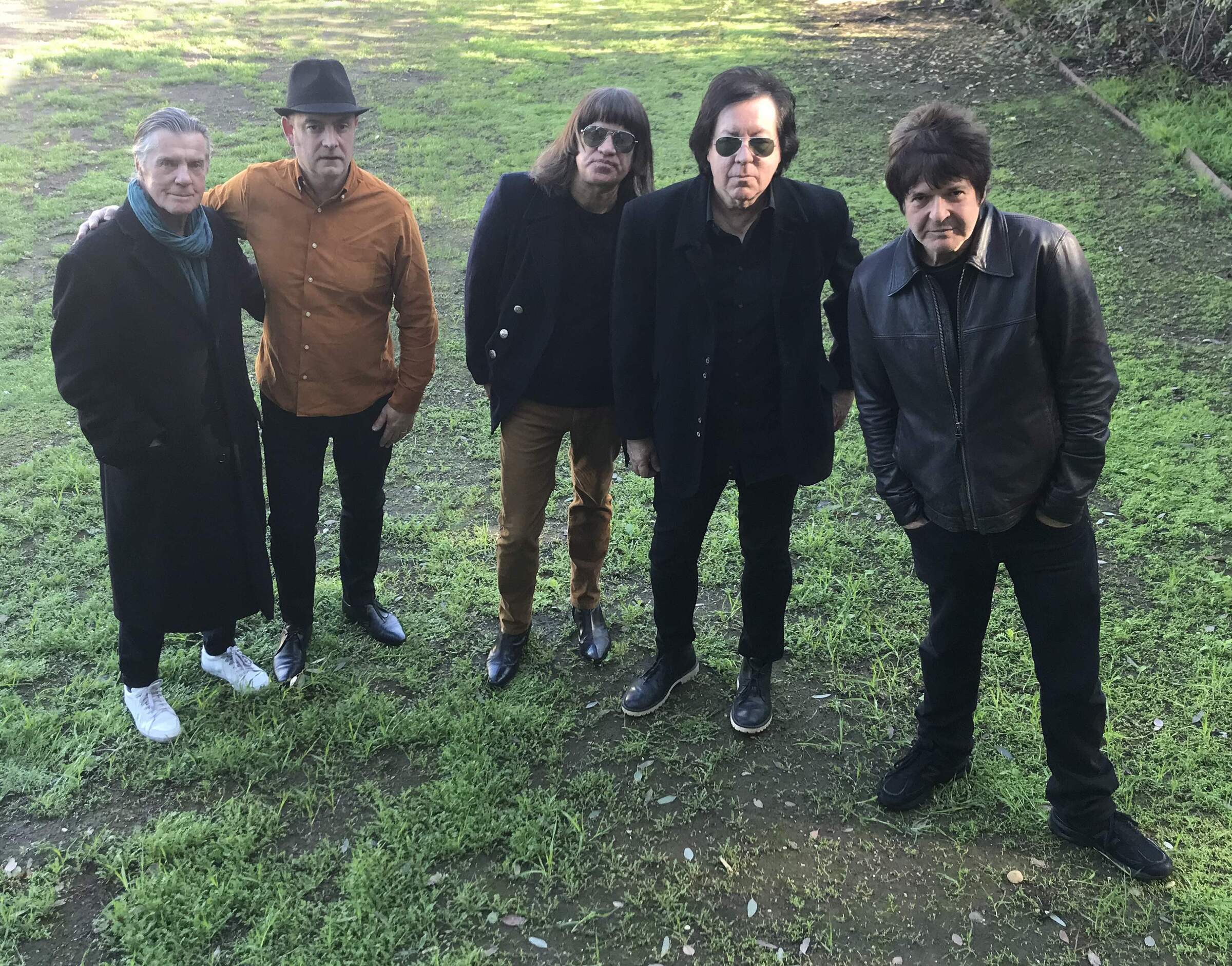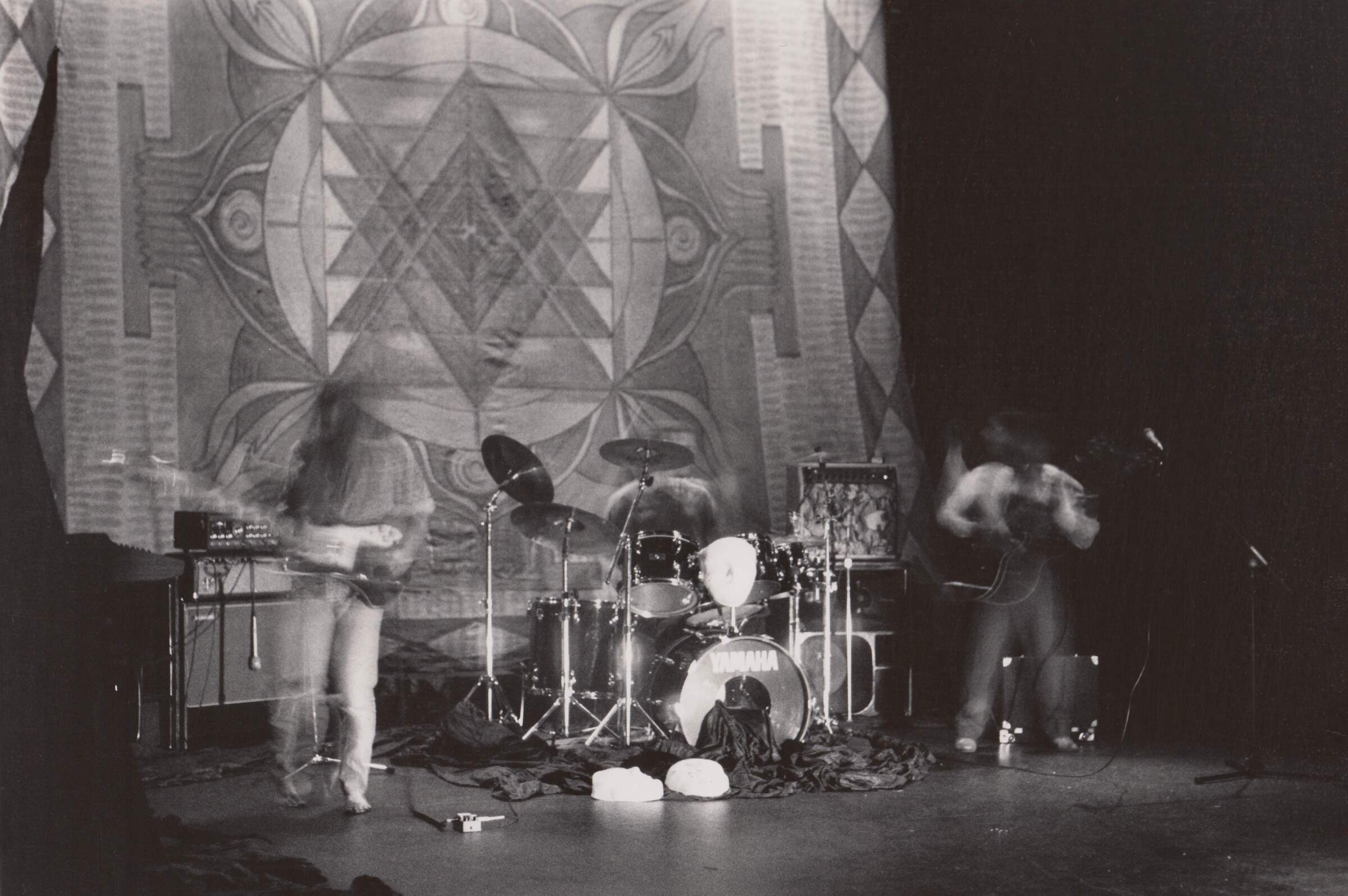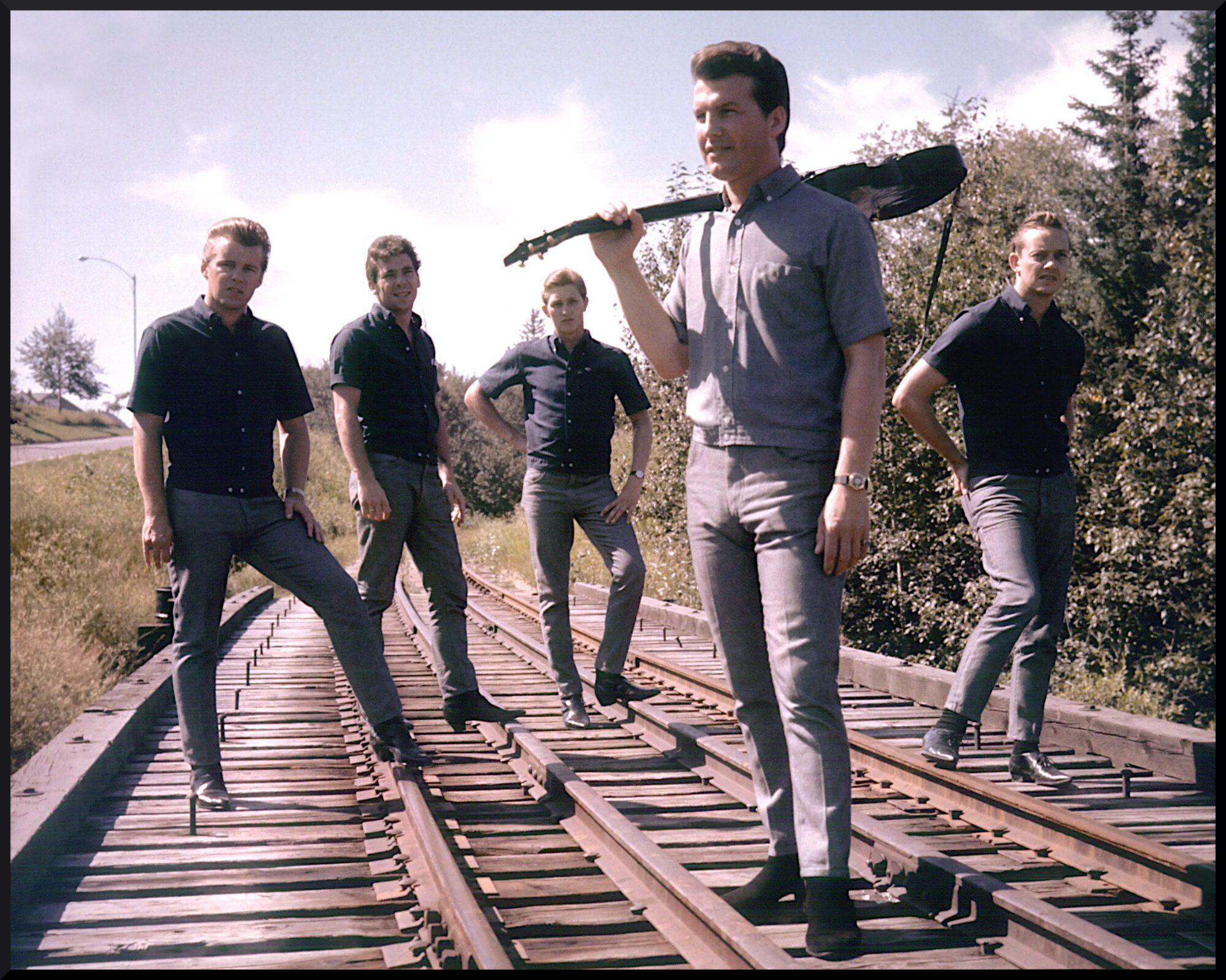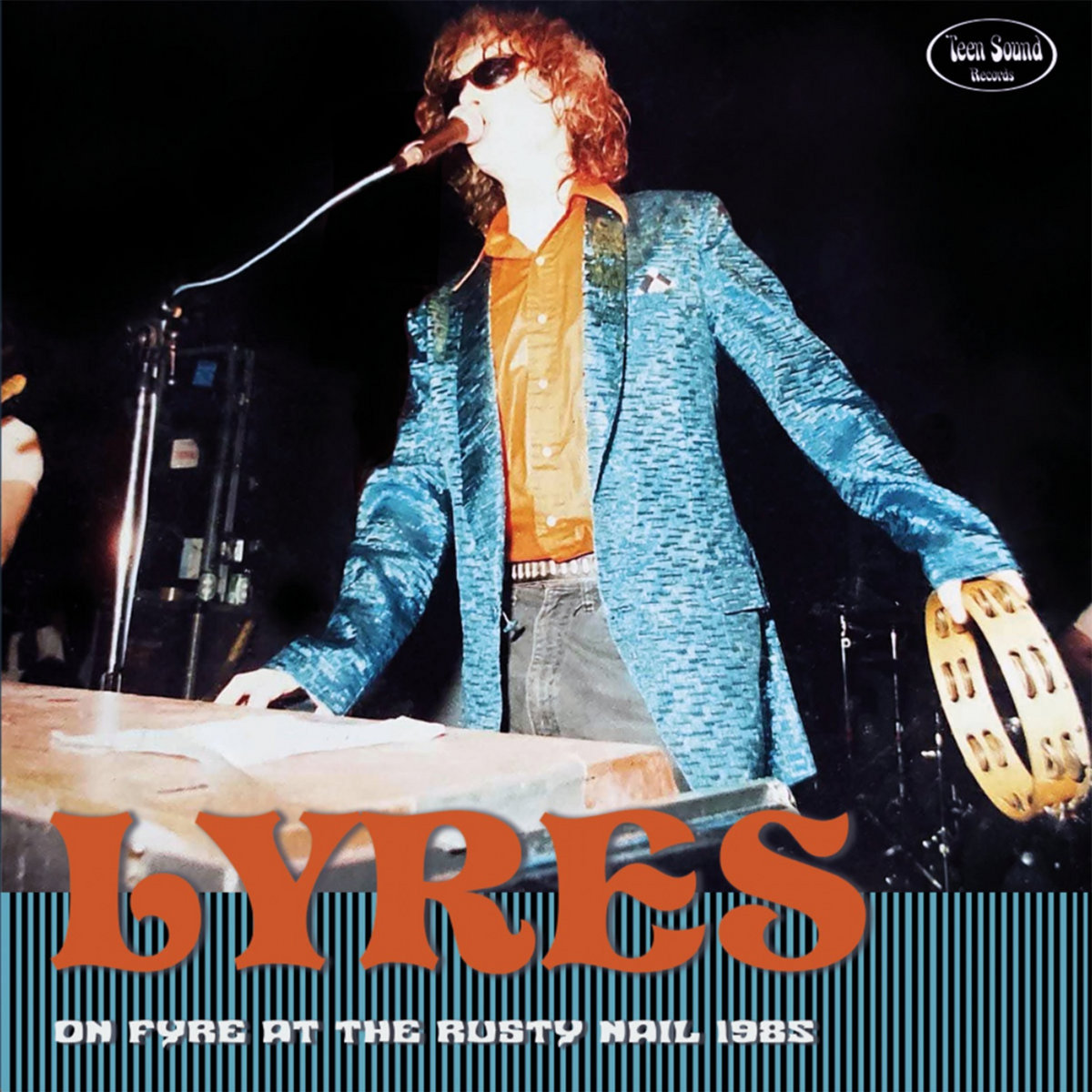Tall Poppy Syndrome | Interview | Jonathan Lea
Tall Poppy Syndrome, a band with an impressive pedigree, has taken the music scene by storm with their latest single, a cover of The Kinks’ ‘This Time Tomorrow’.
The band is a veritable rock supergroup, featuring guitar legend Vince Melouney, who gained fame with the Bee Gees during their psychedelic era; Clem Burke, the powerhouse drummer from Blondie; Jonathan Lea, renowned for his work with the avant-garde pop group The Jigsaw Seen; and Paul Kopf and Alec Palao, who bring their own distinctive flair from Strangers In A Strange Land and The Seeds.
‘This Time Tomorrow,’ originally written by Ray Davies and featured on The Kinks’ 1970 album ‘Lola Versus Powerman,’ finds new life with Tall Poppy Syndrome’s energetic and modern take. The band’s rendition is anchored by Jonathan’s robust guitar riff and Clem’s commanding drum work, with Alec’s basslines adding a melodic undercurrent. Vince Melouney’s lead guitar soars, while Paul Kopf’s vocals add the final riveting touch. The track has a crisp, punchy sound that evokes the energy of early rock while feeling fresh and contemporary.
Tall Poppy Syndrome isn’t just a band with impressive connections; it’s a group with an undeniable passion for rock music. Jonathan Lea, who played guitar with Dave Davies for fifteen years and was part of the historic Kinks reunion in 2015, brings a wealth of experience and a deep appreciation for the music’s roots. The other members have similarly storied backgrounds, having collaborated with a range of legendary artists, from Iggy Pop and Bob Dylan to Nancy Sinatra and Pete Townshend.
With ‘This Time Tomorrow,’ Tall Poppy Syndrome has found a way to bridge the past and the present. It’s a testament to the timeless quality of good rock music and the enduring appeal of talented musicians.
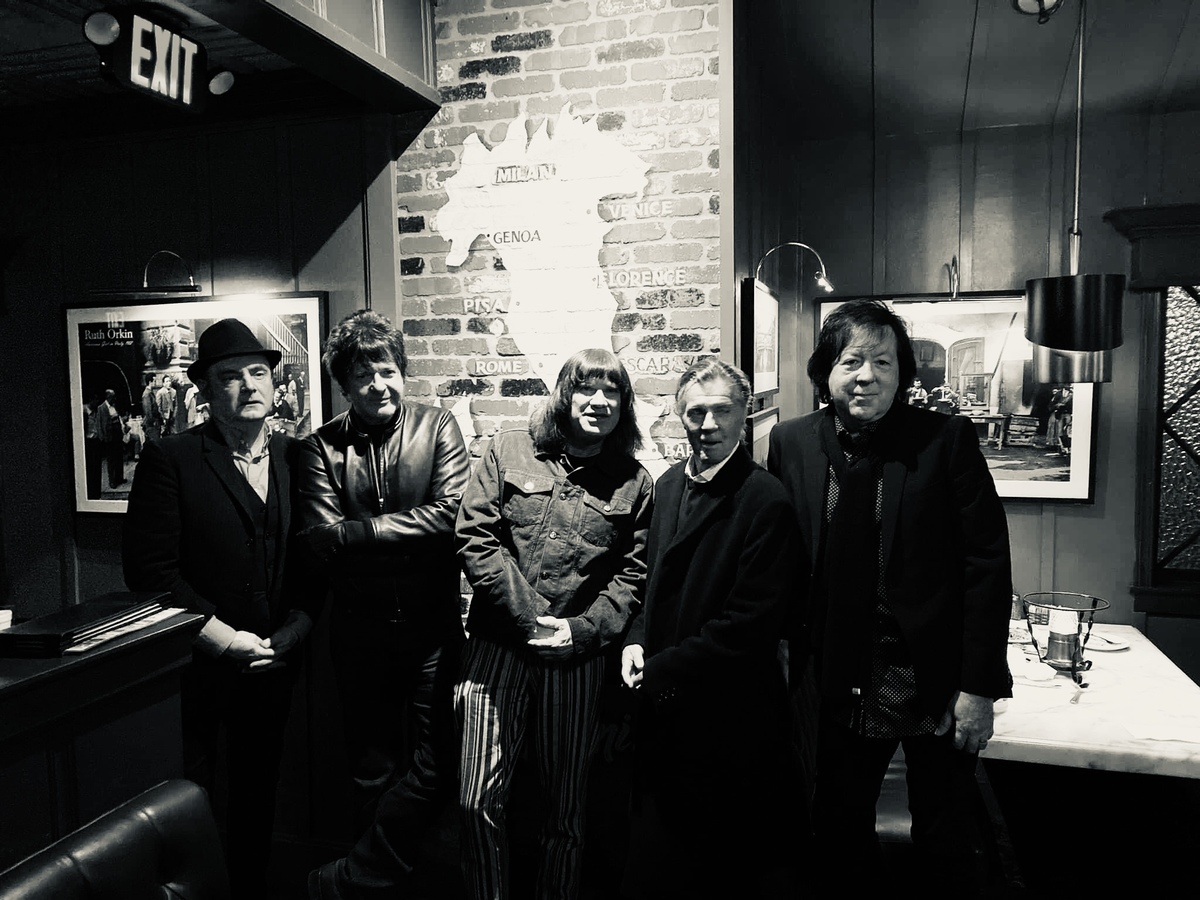
“Yes, we are experienced”
It’s great to have you. How have you been lately?
Jonathan Lea: I’ve been well, thank you. Things have been hectic the last few weeks with the release of the new Tall Poppy Syndrome single, and on top of that, I’m working on the arrangement for our next single, which we’re scheduled to record next month.
How much time, effort, and fun went into the creation of your latest release?
Not much time, and just a bit of effort. The hardest part was working around everybody’s schedules to get all five of us in one place at one time. We did enjoy recording the track and even celebrated with a “pizza party” after the session, attended by many of our friends, which was a lot of fun. We cut the basic track “live” in the studio with engineer Mikal Reid (who’s worked with two favorite singers from my childhood, Mick Jagger and Alice Cooper). It was very easygoing, and we “nailed it” pretty quickly (along with three other songs). Once we had our drummer Clem Burke’s tracks, I then worked with engineer Mark Wheaton (whom I’ve worked with for twenty years), recording my guitar parts. At the same time, Vince Melouney recorded his guitar bits at his home studio back in the UK, while Paul Kopf replaced his scratch vocals, and bassist Alec Palao added a cool Small Faces-meets-‘The Who Sell Out’-style electric piano part at his studio in Northern California. Everyone then sent their tracks to me and Mark, and we put everything together, did some editing (Vince had sent me ten guitar tracks), and mixed it quickly and fairly painlessly (which isn’t always the case).
What initiated the concept behind Tall Poppy Syndrome?
In 2018, Paul and Alec (who record as Strangers In A Strange Land) asked me and Clem to play on a couple of tracks they were recording with Shel Talmy (legendary producer of The Kinks, The Who, and many others). At one of the sessions, Alec (a big Australian music fan) mentioned that they’d like to record something with Vince, who I’d recently started working with (as a teenager, Vince had five Top Ten singles in Australia with the massively popular Billy Thorpe and The Aztecs before leaving to record a few solo singles and then join The Bee Gees in London). I spoke with Vince, and it was agreed that Strangers, Clem, and I would back Vince on his version of The Easybeats’ ‘Women,’ and Vince would play with Strangers on the Bee Gees rarity ‘Ring My Bell’ (also with Clem and me). Both singles were produced by Shel and released in 2020 and 2021. To our surprise, both singles got a nice bit of press and did very well on the radio, garnering attention for all of us. It didn’t take long for the five of us to decide that we should continue working together as a group. Vince had previously told me that he lives in the UK because he’d felt some slight resentment from his fellow Australians. While I was trying to think of a name for the group, I stumbled upon the term “tall poppy syndrome,” which I thought sounded cool. When I Googled it, I couldn’t believe it when I learned it’s an Australian term meaning “to cut down someone once they’ve become successful.” I suggested the name to Vince (who was very familiar with the term), and he loved it.
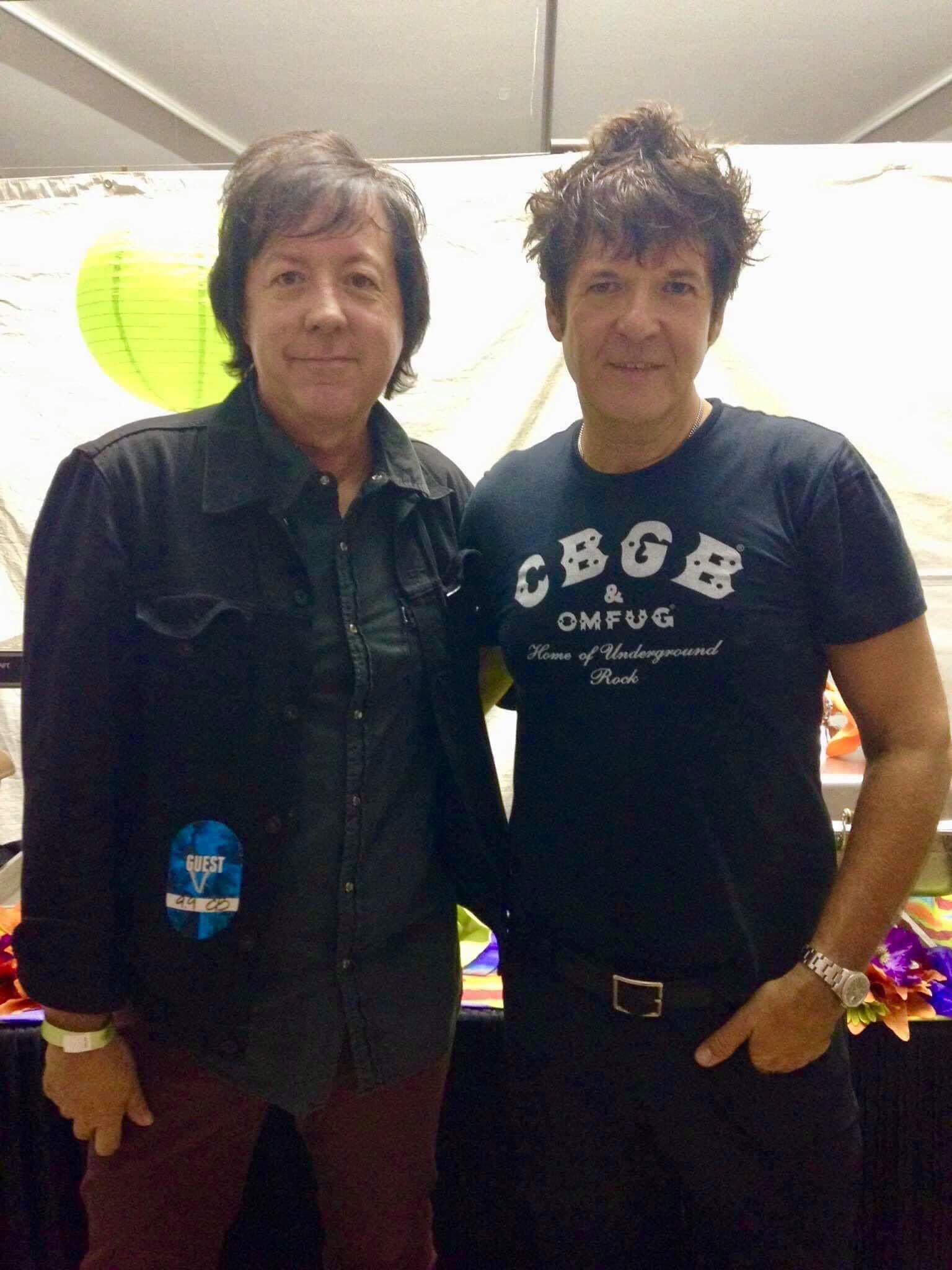
What role did each member of Tall Poppy Syndrome play in the creation of ‘This Time Tomorrow,’ and how did their diverse backgrounds and experiences contribute to the track’s unique sound?
After the release of our first two singles, ‘Come Some Christmas Eve’ and ‘Let It Ride’ (which Vince wrote with Barry Gibb), we were asked to contribute a song for a Kinks tribute album. Clem suggested that we record ‘This Time Tomorrow,’ which everyone thought was interesting. I love the original recording but have no interest in recording any songs based on the original arrangement or instrumentation, so I thought about those mid-70s Kinks tracks like ‘Everybody’s a Star’ and ‘The Hard Way’ and decided to create an arrangement based on a similar Dave Davies-style riff. I made a demo at home, sent it to the guys, and everyone agreed it was the way to go. Despite Vince and Clem both experiencing mega-success (each of them has sold over forty million records), they’re really easy to deal with and totally open to ideas and suggestions. They’re also both very strong players, which makes things easy in the studio. Alec has a very exciting, melodic bass style that I love (he and Clem together could’ve easily been the rhythm section for The Who). Paul can sing any song you throw at him while I oversee the entire thing like a “director” or “conductor,” if you will. I probably shouldn’t admit this, but between the five of us, we have over two hundred years of studio experience, so we are definitely qualified to answer Jimi Hendrix with “yes, we are experienced.”
Your role within Tall Poppy Syndrome seems pivotal, given your extensive experience, including working with Dave Davies of The Kinks for fifteen years. Could you elaborate on how your background influenced the band’s interpretation of ‘This Time Tomorrow’ and its overall sound?
My background and area of “expertise” is actually graphic design, so I always hear things visually, meaning that I like a lot of what I hear as “contrast” or “texture” in recordings. The first album that had a big impact on me was The Beatles’ ‘Sgt. Pepper’s Lonely Hearts Club Band,’ which I became obsessed with when I was five years old. The songs, sounds, and packaging all seemed to me to go together perfectly, so I always try to incorporate dynamics, layers, and “exotic” instrumentation in most of the recordings I’m involved with (along with interesting cover art). With ‘This Time Tomorrow,’ we made it a basic riff rock track but managed to add some “frills” like vocal harmonies, electric piano, Mellotron, and tambourine.
Your collaboration with Dave Davies of The Kinks spans over a decade and a half. How has this partnership shaped your approach to music and performance, particularly in Tall Poppy Syndrome?
Having stood just a few feet from Dave while playing songs like ‘You Really Got Me,’ ‘See My Friends,’ and ‘All Day and All of the Night’ hundreds of times, I guess something must’ve rubbed off. I was already very much influenced by Dave before I even met him, as the first song I ever learned and also the first song I ever performed in front of an audience was ‘All Day and All of the Night’. So to be standing next to him playing that song every night twenty years later was something I never could’ve imagined. For ‘This Time Tomorrow,’ I intentionally tried to play and sound like Dave, so it was really nice to see him post that it “sounds great” on his socials. It was also amazing to receive messages from Ray Davies and Mick Avory telling us that they like our version.
Would love it if you could share some further words about the typical recording process within the band and how that differs from your other projects?
With this band, things are a little complicated as we’re spread out over the globe; Clem and I each live in Los Angeles; Paul and Alec each live in the San Francisco area, and Vince lives in Bath, UK. Also, each of us has a busy schedule; Clem tours and records with Blondie and others, Vince frequently tours Europe and does a lot of international traveling, Paul and Alec have their band Strangers and also work with others, and I’m always working on several things. We’ve managed to record all the basic tracks with at least four of us in attendance, but for overdubs, we’ve recorded separately and collated the parts at mixing sessions. It’s now standard in the industry to work this way, but it’s not really a method I’m used to. We do a lot of pre-planning, discussing the parts and arrangements in detail, so things have worked out well.
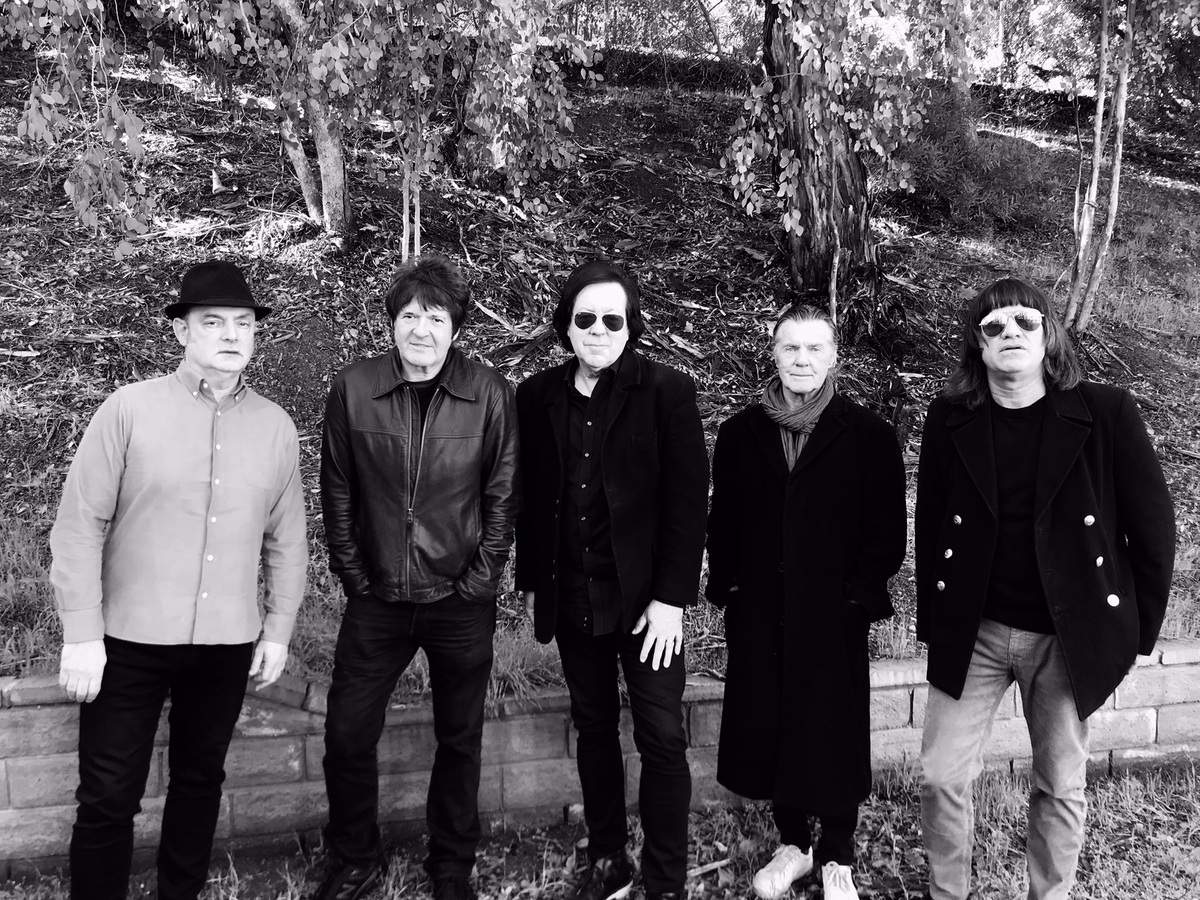
What’s the latest with The Jigsaw Seen?
Nothing’s really going on; we released records and played shows for over thirty years, so I’m not sure how much more we could’ve done. We had some great experiences, playing on bills with Brian Wilson, Dave Davies, and other influences; having bands like Smashing Pumpkins and Kara’s Flowers (Maroon 5) open for us; a string of critically acclaimed, CMJ-charting albums; a Grammy nomination; songs in numerous TV series, including “Futurama,” etc. It was always frustrating because we were never really appreciated in our hometown (Los Angeles), but when we played in New York City, Toronto, Philadelphia, and other cities, the reaction was incredible. I’m really proud of the records we made, and it’s nice to see the amount of times they still get streamed on Spotify and other music services.
Could you tell us how the bands originally formed and how your early sound evolved during the years?
In 1986, Dennis Davison placed an ad for a guitar player in a music paper, and I answered it. Interestingly, two of the first songs we played together were ‘I’m On An Island’ by The Kinks and ‘Turn of the Century’ by The Bee Gees, and I’ve now worked with the lead guitar players from both of those bands. Dennis had a lot of good “Alternative Folk Rock”-styled songs (maybe similar to R.E.M.?), so we started out sounding a bit like that. Over time, we added psychedelic, glam, and bigger guitar elements and varied instrumentation (Stylophone, Mellotron, Ebow, electric sitar, and others). I think that because we were melodic and had harmonies, some lazy journalists labeled us as “power pop,” but we weren’t big fans of that style of music, at least post-1970s “power pop.” Our sound was all over the place, so we fit in easily at College, Alternative, Adult Alternative, and even Mainstream Rock radio formats.
Finally, looking ahead, what new goals or aspirations do you have for the next phase of your career?
I’ve been very fortunate to have played on ten consecutive singles released in the last year (by Tony Marsico, Carla Olson, and Garretson & Gorodetsky, in addition to Tall Poppy Syndrome) that have each reached Number One at numerous radio outlets, so I wouldn’t mind continuing that streak. Tall Poppy Syndrome has a few songs in the can, but we’re going to collaborate with singer Carla Olson on a new single, which we hope to release in September. We’re also considering recording another song that Vince wrote with Barry Gibb (the second-most-successful songwriter in history). I’m sure that once we’ve released seven or eight TPS singles, we’ll record a few more songs and release a full album (we’ve had a few offers from labels, but not everyone in the group is able to commit to recording an entire album at this time due to scheduling). I’d also like to tour again, but I’m not sure if that’s possible in today’s post-pandemic climate. I came up with the idea to have Tall Poppy Syndrome perform the entire ‘Bee Gees’ First’ album (in addition to our own singles, a few Blondie and Vince solo songs, and more), but it appears promoters are only interested in a kitschy, disco-style Bee Gees show.
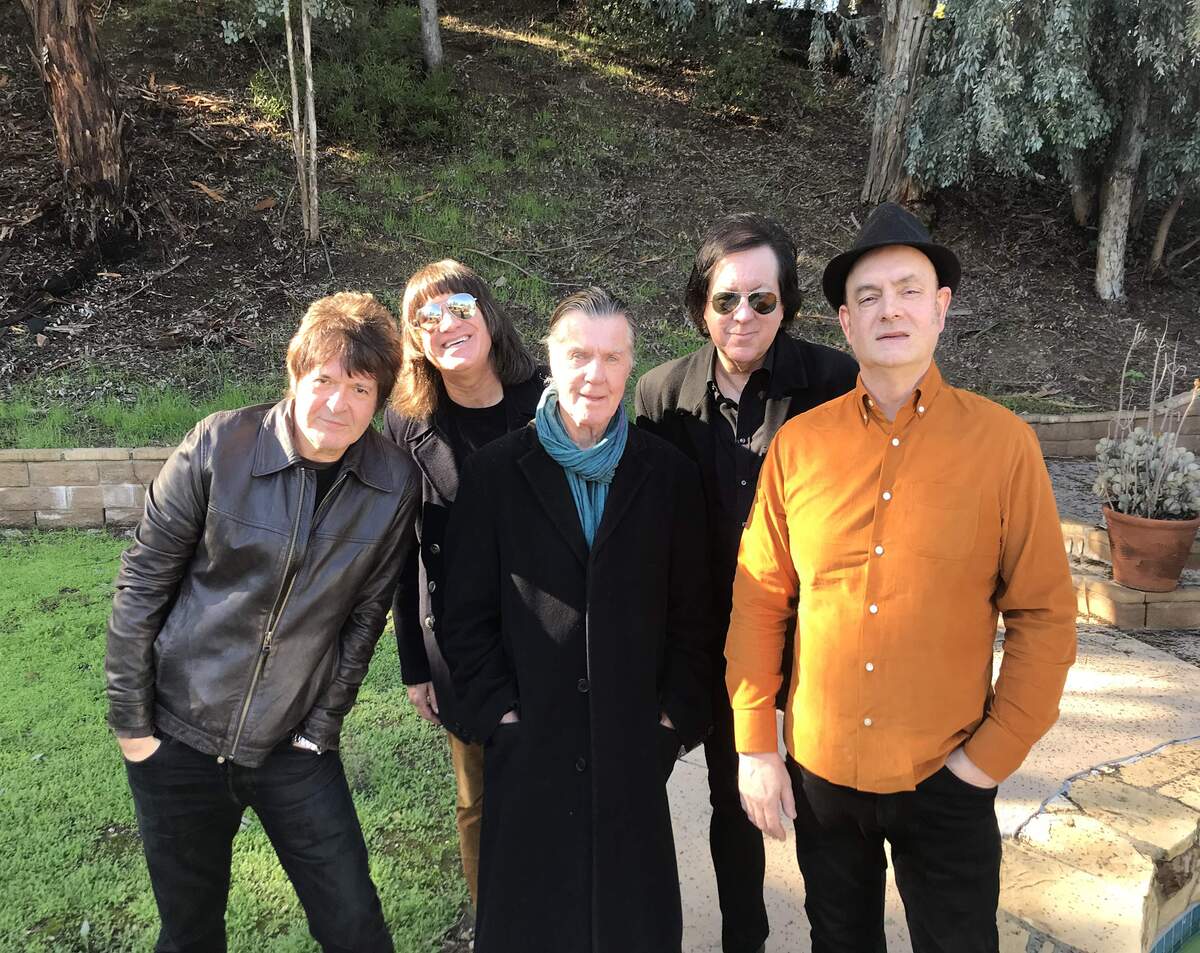
Thank you for taking the time. The last word is yours.
I’d like to thank you for giving me this platform to talk about Tall Poppy Syndrome (and myself). I’d also like to thank all the Jigsaw Seen, Kinks, and Bee Gees fans who’ve been supportive of my recent endeavors. As a kid, I was obsessed with radio, so getting to hear tracks I’ve worked on being played on the radio daily is the greatest feeling to me and is also my idea of “success.” For those of you playing in bands, always stick with it and never get “tired of waiting”—you really never know what lies ahead of you.
Klemen Breznikar
Headline photo: Tall Poppy Syndrome | Photo by Lee Escobar
Tall Poppy Syndrome Official Website / Facebook / Instagram / Twitter / Bandcamp
Vince Melouney interview | The Bee Gees, The Aztecs, Fanny Adams
Alec Palao, Man Of Many Musical Hats

